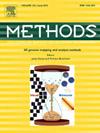Robust temporal knowledge inference via pathway snapshots with liquid neural network
IF 4.3
3区 生物学
Q1 BIOCHEMICAL RESEARCH METHODS
引用次数: 0
Abstract
Static graphs play a pivotal role in modeling and analyzing biological and biomedical data. However, many real-world scenarios—such as disease progression and drug pharmacokinetic processes—exhibit dynamic behaviors. Consequently, static graph methods often struggle to robustly address new environments characterized by complex and previously unseen relationship changes. Here, we propose a method for constructing temporal knowledge inference agents tailored to disease pathways, enabling effective relation reasoning beyond their training environment under complex shifts. To achieve this, we developed an imitation learning framework using liquid neural networks, a class of continuous-time neural models inspired by the brain function that are causal and adaptable to changing conditions. Our findings indicate that liquid agents can distill the essential tasks from knowledge graph inputs while accounting temporal evolution, thereby enabling the transfer of temporal skills to novel time nodes. Compared to state-of-the-art deep reinforcement learning agents, experiments demonstrate that temporal robustness in decision-making emerges uniquely in liquid networks.
基于路径快照的液体神经网络鲁棒时间知识推理
静态图在建模和分析生物和生物医学数据中起着关键作用。然而,许多现实世界的情况,如疾病进展和药物的药代动力学过程,表现出动态行为。因此,静态图方法常常难以健壮地处理以复杂和以前看不见的关系变化为特征的新环境。在这里,我们提出了一种构建针对疾病路径的时间知识推理代理的方法,使其能够在复杂变化的训练环境之外进行有效的关系推理。为了实现这一目标,我们使用液体神经网络开发了一个模仿学习框架,液体神经网络是一类受大脑功能启发的连续时间神经模型,它们具有因果关系,能够适应不断变化的条件。我们的研究结果表明,液体代理可以从知识图输入中提取基本任务,同时考虑时间进化,从而使时间技能转移到新的时间节点。与最先进的深度强化学习代理相比,实验表明,决策的时间鲁棒性在液体网络中是独一无二的。
本文章由计算机程序翻译,如有差异,请以英文原文为准。
求助全文
约1分钟内获得全文
求助全文
来源期刊

Methods
生物-生化研究方法
CiteScore
9.80
自引率
2.10%
发文量
222
审稿时长
11.3 weeks
期刊介绍:
Methods focuses on rapidly developing techniques in the experimental biological and medical sciences.
Each topical issue, organized by a guest editor who is an expert in the area covered, consists solely of invited quality articles by specialist authors, many of them reviews. Issues are devoted to specific technical approaches with emphasis on clear detailed descriptions of protocols that allow them to be reproduced easily. The background information provided enables researchers to understand the principles underlying the methods; other helpful sections include comparisons of alternative methods giving the advantages and disadvantages of particular methods, guidance on avoiding potential pitfalls, and suggestions for troubleshooting.
 求助内容:
求助内容: 应助结果提醒方式:
应助结果提醒方式:


